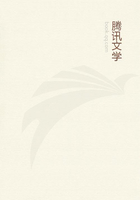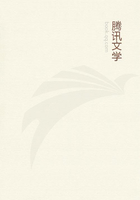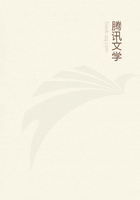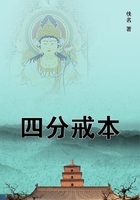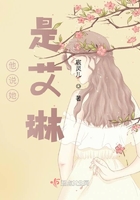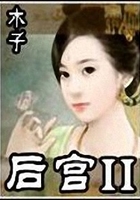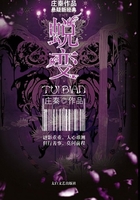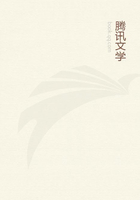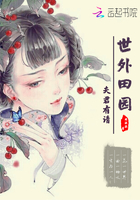Respect for literature was dead. In the year, 476, Zeno, the Isaurian, burned 120,000 volumes in the city of Constantinople. During the year 640, Amrou, the Saracen, fed the baths of Alexandria for six months with the 500,000 books that had been accumulating for centuries in its famous library of the Serapion. Yet books were so scarce in Rome at the close of the seventh century that Pope Martin requested one of his bishops to supply them, if possible, from Germany. The ignorance of ecclesiastics in high station was alarming. During this century, and for centuries afterward, there were many bishops and archbishops of the church who could not sign their names. It was asserted at a council of the church held in the year 992, that scarcely a single person was to be found in Rome itself who knew the first elements of letters. Hallam says, 'To sum up the account of ignorance in a word, it was rare for a layman of any rank to know bow to sign his name.' He repeats the statements that Charlemagne could not write, and Frederic Barbarossa could not read.
John, king of Bohemia, and Philip, the Hardy, king of France, were ignorant of both accomplishments.
The graces of literature were tolerated only in the ranks of the clergy; the layman who preferred letters to arms was regarded as a man of mean spirit.
When the Crusaders took Constantinople, in 1204, they exposed to public ridicule the pens and inkstands that they found in the conquered city as the ignoble arms of a contemptible race of students.
"During this period of intellectual darkness, which lasted from the fifth until the fifteenth century, a period sometimes described, and not improperly, as the dark ages, there was no need for any improvement in the old method of making books. The world was not then ready for typography.
The invention waited for readers more than it did for types; the multitude of book buyers upon which its success depended had to be created.
Books were needed as well as readers. The treatises of the old Roman sophists and rhetoricians, the dialectics of Aristotle and the schoolmen, and the commentaries on ecclesiastical law of the fathers of the church, were the works which engrossed the attention of men of letters for many centuries before the invention of typography. Useful as these books may have been to the small class of readers for whose benefit they were written, they were of no use to a people who needed the elements of knowledge."In the more ancient times, however, when MSS. books (rolls) were not quite so plentiful there was seemingly no difficulty in obtaining large sums for them.
Aristotle, died B. C. 322, paid for a few books of Leusippus, the philosopher, three Attick talents, which is about $3,000. Ptolemy Philadelphus is said to have given the Athenians fifteen talents, an exemption from tribute and a large supply of provisions for the MSS. of aeschylus, Sophocles and Euripides written by themselves.
Arbuthnot, discussing this subject, remarks that Cicero's head, "which should justly come into the account of Eloquence brought twenty-five Myriads of Drachms, which is the equivalent of $40,000. Also, "the prices of the magical books mentioned to be burnt in the Acts of the Apostles is five. Myriads of Pieces of Silver or Drachms."Picolimini relates that the equivalent of eighty golden crowns was demanded for a small part of the works of Plutarch.
If we are to believe any of the accounts, the environment of the art of handwriting and handwriting materials at the beginning of the fifth century had contracted within a small compass, due principally to the general ignorance of the times.
As practiced it was pretty much under the control of the different religious denominations and the information obtainable about inks from these sources is but fragmentary. What has come down to us of this particular era is mostly found on the old written Hebrew relics, showing that they at least had made no innovations in respect to the use of their ritualistic deyo.
The invention of the quill pen in the sixth century permitted a degree of latitude in writing never before known, the inks were made thinner and necessarily were less durable in character. Greater attention was given to the study and practice of medicine and alchemy which were limited to the walls of the cloister and secret places. The monk physicians endeavored by oral instructions and later by written ones to communicate their ink-making methods not only of the black and colored, but of secret or sympathetic inks, to their younger brethren, that they might thus be perpetuated. All the traditional and practical knowledge they possessed was condensed into manuscript forms; additions from other hands which included numerous chemical receipts for dyeing caused them to multiply; so that as occasion required from time to time, they were bound up together booklike and then circulated among favored secular individuals, under the name of "Secreta."The more remote of such treatises which have come down to us seem to indicate the trend of the researches respecting what must have been in those times unsatisfactory inks. Scattered through them appear a variety of formulas which specify pyrites (a combination of sulphur and metal), metals, stones and other minerals, soot, (blue) vitriol, calxes (lime or chalk), dye-woods, berries, plants, and animal colors, some of which if made into ink could only have been used with disastrous results, when permanency is considered.
The black ink formulas of the eighth century are but few, and show marked improvement in respect to the constituents they call for, indicating that many of those of earlier times had been tried and found wanting. One in particular is worthy of notice as it names (blue) vitriol, yeast, the lees (dregs) of wine and the rind of the pomegranate apple, which if commingled together would give results not altogether unlike the characteristic phenomena of "gall" ink.
Confirmation of the employment of such an ink on a document of the reign of Charlemigne in the beginning of the ninth century on yellow-brown Esparto (a Spanish rush) paper, is still preserved. Specimens of "pomegranate" ink, to which lampblack and other pigments had been added of varying degrees of blackness, on MSS., but lessening in number as late as the fourteenth century, are still extant in the British Museum and other public libraries.

